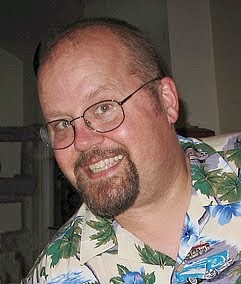When the original “Superman” film came out in theaters I
was eight years old. Aside from “Star Wars”, it is one of the most treasured movie-going
experiences of my youth. When my
parents and I left the theater, I was so overcome with what I had experienced that I
looked up into the night sky.
Over one of the government buildings an American flag was fluttering in
the spotlight. My fleeting glimpse
combined with the potency of my childhood imagination transformed that flag for
a second into a red cape, and for the briefest of
moments, I thought Superman was real.
I believed. Since that day, I have been patiently waiting
for another cinematic hero to sweep me off my feet and fill me with the same hope, excitement and joy that I experienced as a child.
Adulthood brings a lot of changes, and one of the biggest is the loss of innocence. Despite all the ugliness and cruelty in the world, I still want to believe in something pure, someone like Superman who evokes the warm glow of old-fashioned, aw-shucks Americana. Unfortunately, "Man of Steel" has almost none of this. The film is cold and grim, and nearly bereft of nostalgia. My worry over the choice of Zack Snyder as the director was confirmed. I've seen most of Snyder's previous films, and haven’t enjoyed any of them except for his 2004 remake of “Dawn of the Dead.” His visual style fit that film perfectly as the shaky cam and frenetic pacing were appropriate for a zombiepocalypse. Yet this chaotic and grim aesthetic is present through all of his succeeding works and it doesn't fit a Superman movie at all. There are also other major problems.
The scenes of Superman’s boyhood in Kansas are the only ones that provide any emotional connection. The shaky cam is finally set on a tripod and the characters are given a chance to interact. However, the fractured nature of the editing between the past and the present breaks up the necessity of showing us how and why Superman grows up to be the personification of truth and justice. Superman is a simple character, and his story should be told in a simple fashion. These flashbacks provide brief pauses of warmth, but they are too few to carry us through the headache-inducing barrage of CGI mayhem that comprises the entire third act.
Superman and his enemies beat the crap out of each other for extended periods, but it's nearly impossible to understand what's going on because the editing is so accelerated that the action becomes incomprehensible. The collateral damage done by the combatants topples multiple skyscrapers, and I was shocked to see so many human casualties ignored. One of the more clever scenarios in "Superman II" was when the villians discover that Superman actually cares for humans and use this knowledge against him. In "Man of Steel", Superman is oblivious to the wanton destruction occurring around him, and I couldn't believe that he would allow, much less contribute to such massive loss of life.
The original “Superman” film did not try to beat the audience into submission. It quietly seduced us because it had charm to spare. It wasn’t just the acting talents of
Christopher Reeve and the good-natured yet cheesy
atmosphere. It was that the filmmakers
understood the character of Superman. They knew that he was a farm boy from Kansas who wanted to express his gratitude for having a new
world to call home by doing all he could to make it a better place. Superman had no angst, he never doubted himself, and always
knew that what he was doing was right. Superman
never worried whether people would like him; he saved them and let
the love come naturally. Even though he was the Man of Steel, inside him beat the altruistic
heart of all of us.








No comments:
Post a Comment